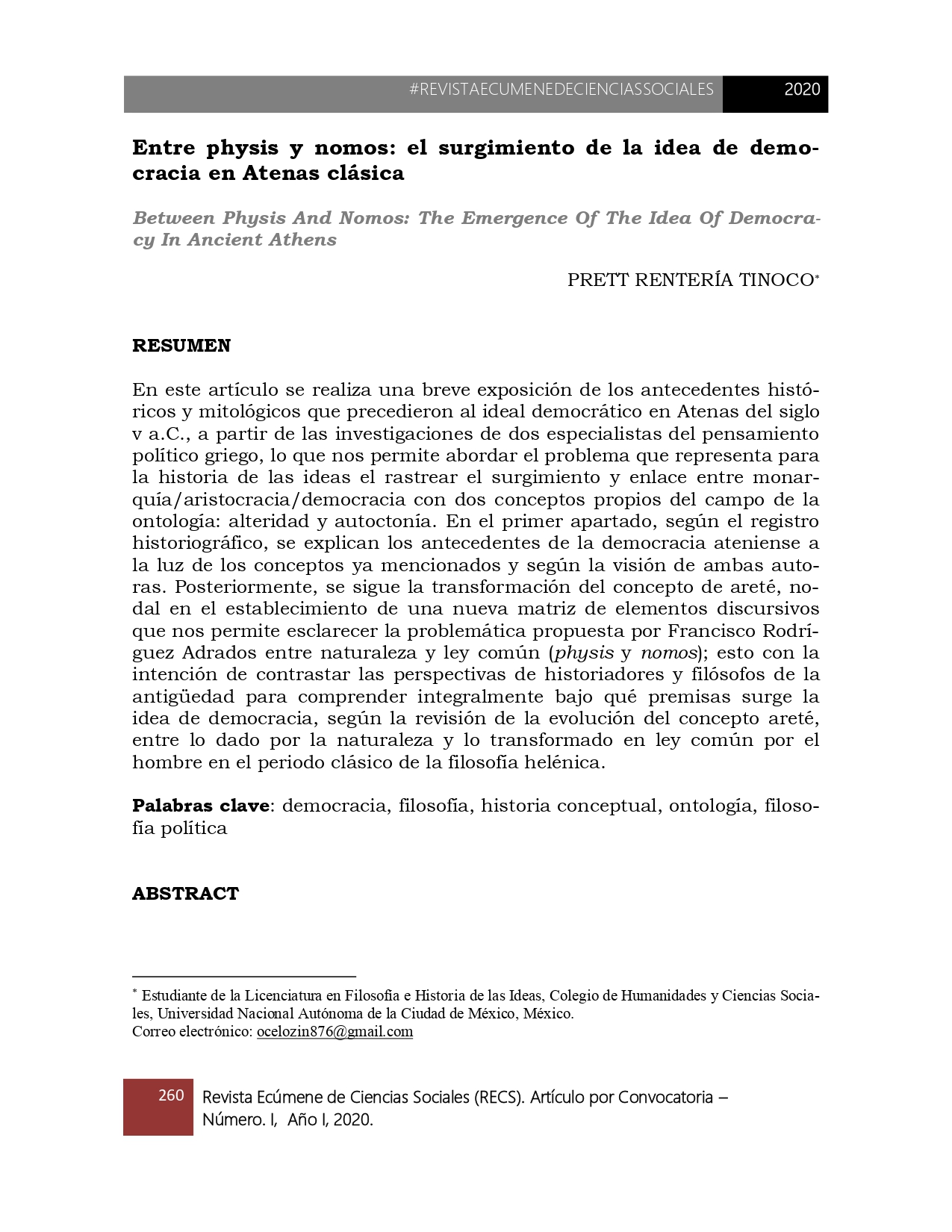Abstract
This article makes a brief exposition of the historical and mythological antecedents that preceded the democratic ideal in Athens of the 5th century B.C, from the research of two specialists in greek political thought, which allows us to address the problem it represents for the history of Ideas to trace the emergence and link between monarchy/aristocracy/democracy with two concepts typical of the field of ontology: alterity and autochthony. In the first section, the background, according to the historiographic record, of athenian democracy is explained in light of the concepts already mentioned and according to the vision of both authors. Subsequently, in the second section, the transformation of the concept of areté is crucial for the establishment of a new matrix of discursive elements that allows us to clarify the problems proposed by Francisco Rodríguez Adrados between nature and common law (physis and nomos). This with the intention of contrasting the perspectives of historians and philosophers to fully understand under wich premises the idea of democracy arises, according to the revision of the evolution of the areté concept, between what is given by nature and what is transformed into common law by man in the classical period of hellenic philosophy.

This work is licensed under a Creative Commons Attribution-NonCommercial-ShareAlike 4.0 International License.

